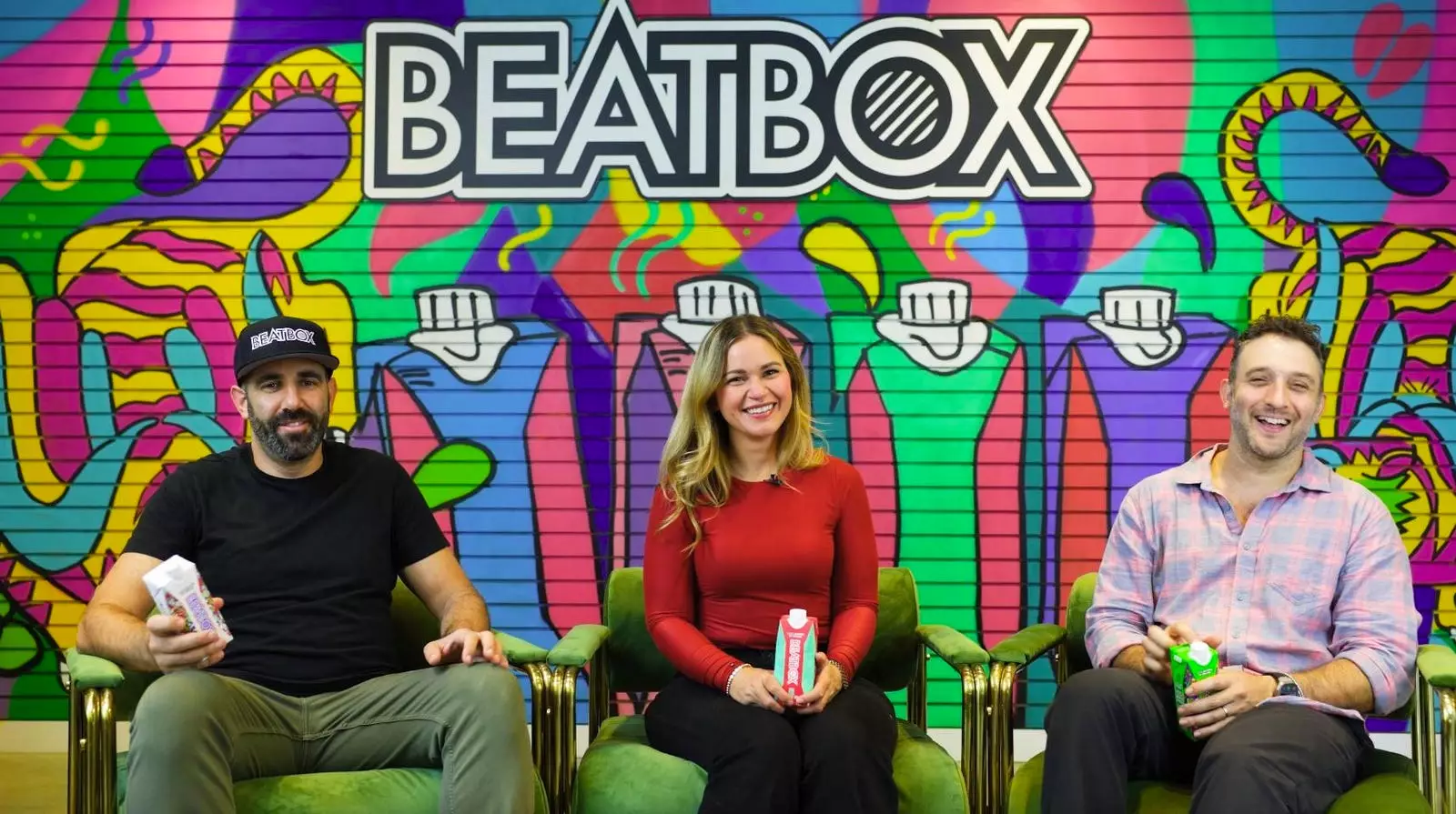BeatBox Beverages rose to fame in 2014 when the founding trio made a groundbreaking appearance on Shark Tank. Mark Cuban saw the potential in their innovative stereo-shaped bag-in-a-box party alcohol and decided to invest $1 million for a third of the company. This investment proved to be one of the largest deals in Shark Tank’s history and set the stage for BeatBox’s meteoric rise in the alcohol industry.
The founders, Justin Fenchel, Aimy Steadman, and Brad Schultz, were inspired to create BeatBox Beverages during their time studying for MBAs at the University of Texas at Austin. They recognized a gap in the market for exciting alcoholic options at parties, beyond the traditional offerings of beer and boxed wine. Their vision was to combine fun flavors with a music-centric brand, drawing from their shared passion for music festivals.
In the early days, BeatBox operated from a modest 800-square-foot facility in Austin and distributed their products as a winery. However, they soon realized that their retail prices were high and their product pack sizes were intimidating to consumers. To address this, they launched a more approachable single-serve trial size in 2017, becoming pioneers in using Tetra Pak for ready-to-drink cocktails.
This shift, along with a move to beer distributors from wine and spirits networks, proved to be a game-changer for BeatBox. By tapping into beer distribution channels, such as c-stores like 7-Eleven, BeatBox was able to reach a wider audience and drive sales growth. The company’s strategic decision to align with beer networks led to a significant increase in sales, outperforming their previous performance by a wide margin.
Strategic Partnerships and Expansion
One of BeatBox’s key moves for growth was onboarding Shaquille O’Neal as an investor, enhancing their consumer-centric marketing efforts through social media and celebrity partnerships. By leveraging O’Neal’s star power, BeatBox was able to further solidify its presence in the market and connect with a broader audience.
Currently, BeatBox Beverages are available in over 107,000 retail locations across all 50 U.S. states, accounting for 22% of the RTD category growth. The company’s sales have been consistently growing, with an average weekly increase of 129% in 2024 and a household penetration rate of just 3.9%. To fuel further expansion, BeatBox has made strategic hires, such as appointing Toby David from Celsius as a new board member and bringing on Christine Perich, former CEO of New Belgium, to join their advisory board.
As BeatBox Beverages continues to thrive and expand its product offerings, the company remains focused on diversifying its flavors and expanding its reach in the mainstream market. With recent launches like Orange Blast and upcoming flavors like Cherry Limeade, BeatBox is poised to capture a wider audience and maintain its growth trajectory.
BeatBox Beverages has evolved from a bold startup with a revolutionary concept to a dominant player in the alcohol industry. Through strategic partnerships, innovative product offerings, and a consumer-centric approach, BeatBox has solidified its position as a leader in the market. With ambitious plans for the future and a commitment to continuous growth, BeatBox Beverages is poised to continue its success story for years to come.


Leave a Reply